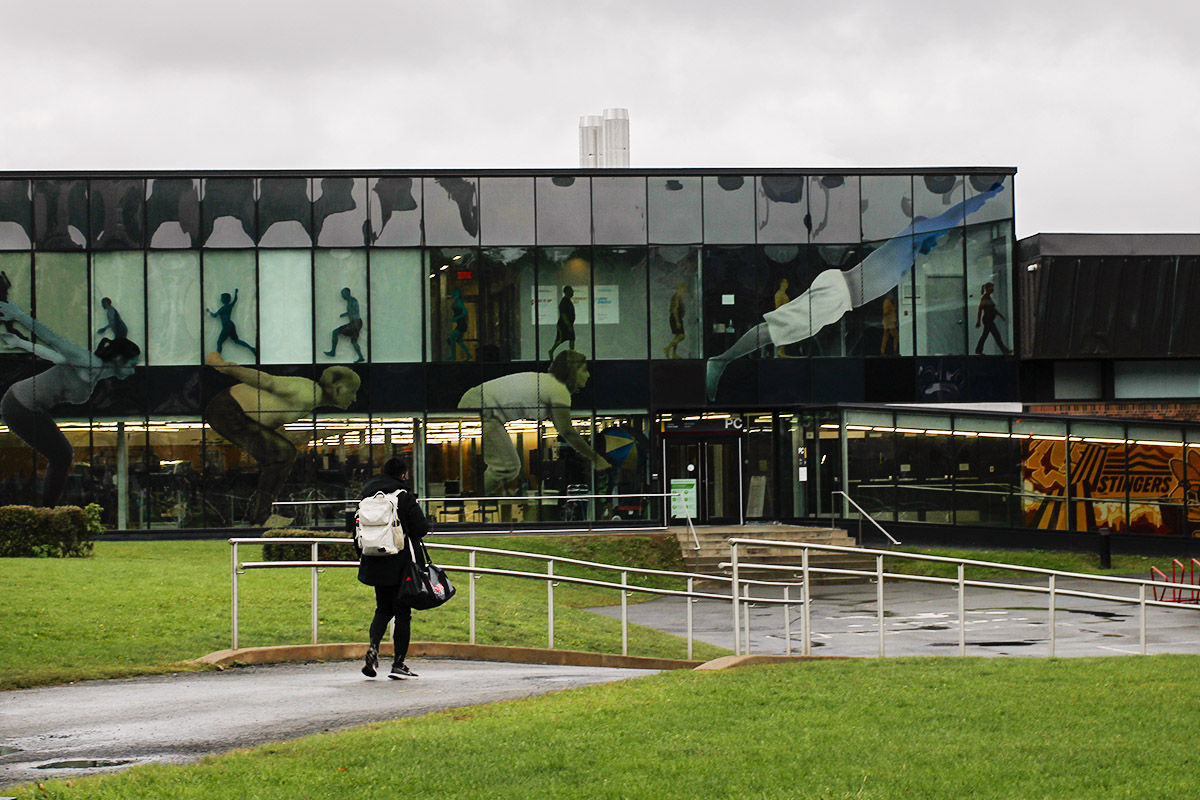Campus gyms that do reopen this semester will need students to present double proof of vaccination
Update: According to an announcement published on Sept.27, Concordia’s downtown campus gym, Le Gym, will reopen on Oct. 4. This article published on Sept. 28 has been updated with the new information.
Concordia’s downtown Le Gym will reopen to all students on Oct. 4, with registration opening a few days earlier on Oct. 1, as the Loyola campus’ PERFORM Centre remains closed to students.
Le Gym will open at a reduced capacity, and there will no reservation system in place. Students can access the newly opened gym on campus from Monday to Friday 6:30 a.m. to 9 p.m. and on weekends from 8 a.m to 8 p.m..
With fall 2021 being the first semester with in-person classes since the beginning of the pandemic, many students were looking forward to taking advantage of the affordable university gyms, a service supported in part by tuition fees. Regular exercise has long been shown to improve mental health and strengthen cognitive abilities, all benefits in dire need of attention after a prolonged quarantine.
Loyola campus’ PERFORM Centre website features an outdated message: “the University campus remains closed […] the gym will therefore remain closed as well until the campus is again open to the public”.
However, even though the campus has reopened, the PERFORM Centre has remained closed to students, with only Le Gym opening downtown.
Kevin Hammill, the service coordinator of the Loyola campus PERFORM Centre, said that they hope to open “sometime in October. Most likely, the vaccination passport will be required.”
He added that prices for membership will be revised, “because you’re going to lose at least six weeks so we can’t charge the full cost — there will be reduced hours, reduced days, depending on research.”
Although gyms have reopened across Montreal, Hammill reminds students that the PERFORM Centre is primarily for research rather than being a traditional for-profit gym. Right now, only research study participants have access to the PERFORM Centre on Loyola campus. Regular students are at the bottom of this priority hierarchy.
Prior to the announcement that Le Gym was opening, Concordia students shared their frustration with campus gyms remaining closed.
Aedan Conlin is in the third year of his computer science degree. He was planning to attend Le Gym since most gyms near where he lives are not affordable.
“I was expecting my university to promote physical health, given the mental health benefits, but I had to scramble to find something,” Conlin said.
For many, the convenience of a gym that can be attended before or after classes is hard to replace.
“I used to work out and then do my schoolwork and it would really help me concentrate. It was very convenient,” said Ephrathah Hadgu, a student at the Loyola campus. “The worst part is the travel, not the cost.”
There is no guarantee the PERFORM Centre will reopen. “We don’t want to open and close two or three weeks later because we didn’t think it out well enough. It’s also contingent on society, if hospitalization goes up, if COVID cases go up — we’ll have to re-examine and reassess,” Hammill added.
For those looking for a gym immediately can access Le Gym as long as they can show double proof of their COVID vaccination. Another option is Éconofitness centres, which are relatively affordable and located throughout Montreal. The local YMCAs, although pricier, offer a reduced fare based on financial need. The application can be found online.
Photograph by Christine Beaudoin
